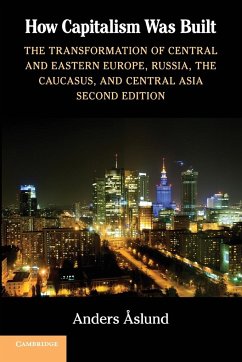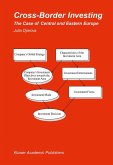Anders Aslund is known to make bold predictions that initially arouse controversy but soon become common wisdom. In Gorbachev's Struggle for Economic Reform (1989), he foresaw the collapse of the Soviet political and economic system. After Russia's financial crisis of 1998, observers declared the market economic experiment a failure, Aslund foresaw market economic success (Building Capitalism, 2002). In How Capitalism Was Built, 2nd Edition, he asks - and answers for the twenty-one countries he investigates: - Why did communism collapse? - Why did Russia not choose gradual reforms like China did? - Wherein lies the relative success of postcommunist transformation? - How did the oligarchs arise and decline vis-à-vis authoritarian leaders? Anyone who wants to understand the often confusing postcommunist dramas and obtain an early insight into the future will find this intellectually stimulating book useful. This edition includes updates to each chapter and new chapters on the impact of the global financial crisis and the European Union.
Hinweis: Dieser Artikel kann nur an eine deutsche Lieferadresse ausgeliefert werden.
Hinweis: Dieser Artikel kann nur an eine deutsche Lieferadresse ausgeliefert werden.
'How Capitalism Was Built is an impressive achievement. It deals with all the important aspects of one of the most important transformations in modern history. It is based on a massive empirical literature and - what's rare - on an author's firsthand knowledge of the transition countries. It should be read by everybody interested in modern history, politics, and economics.' Leszek Balcerowicz, College of Europe and Former Chairman, National Bank of Poland








